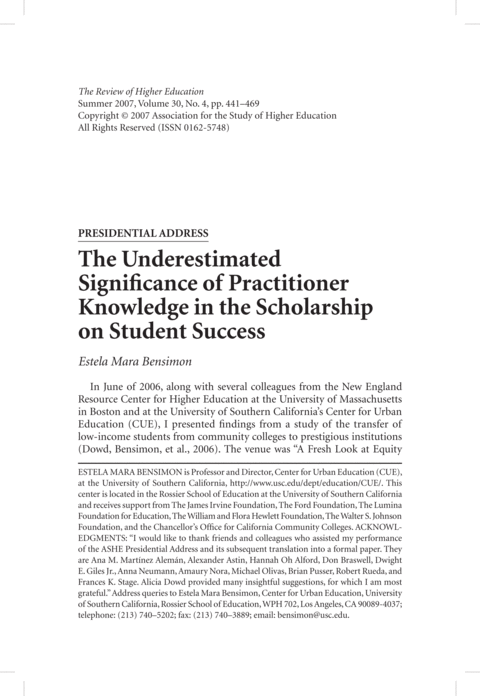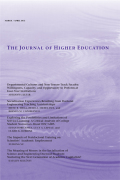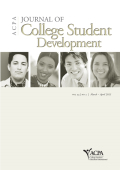From:
The Review of Higher Education
Volume 30, Number 4, Summer 2007
pp. 441-469 | 10.1353/rhe.2007.0032
The scholarship on student success, particularly for minority groups, has two limitations. One is the lack of attention to practitioners' knowledge, beliefs, experiences, education, and feelings of self‑efficacy as factors that influence student outcomes. The other derives from the traditional science assumption that the researcher produces generalized knowledge that is translatable into "best practices" that are implemented locally by practitioners. These epistemological limitations can be addressed by the conceptualization of a phronetic social science for higher education where practitioners assume the role of researchers and develop context‑dependent knowledge and experience about how to facilitate student success.
Preview of first page








